Are you interested in exploring historic homes? Here are the must-see historic houses in Upper Austria:
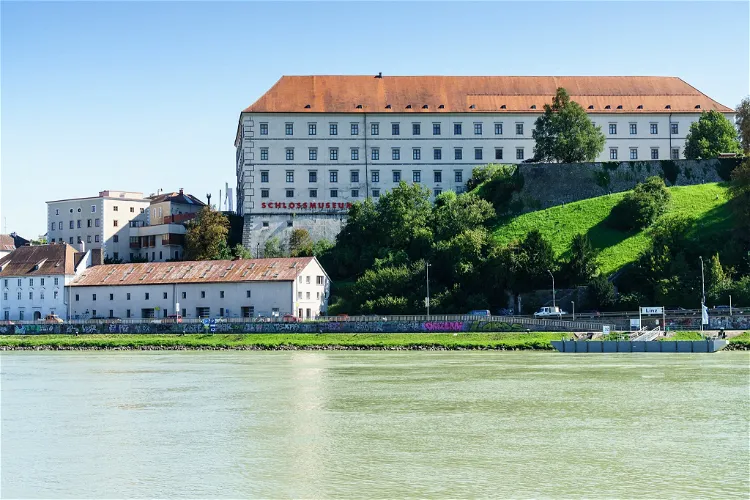
Linz Castle
LinzLinz Castle, perched on a hill, offers a panoramic view of the old town of Linz and the Danube. The castle's location is historically significant as it is built on the site of the ancient Roman fort of Lentia. This blend of history and scenic beauty makes it a fascinating spot for visitors.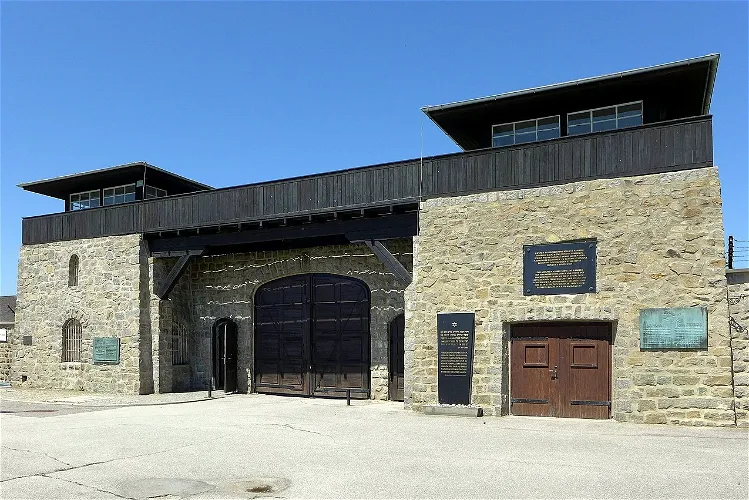
Mauthausen Concentration Camp
MauthausenMauthausen-Gusen was a collection of Nazi concentration camps located around the small Austrian town of Mauthausen, approximately 20 km east of Linz. The main camp was established shortly after Austria's Anschluss and evolved into one of the most notorious concentration camps. The camp was situated near a granite quarry that supplied a large portion of the stone used for paving the streets of Vienna.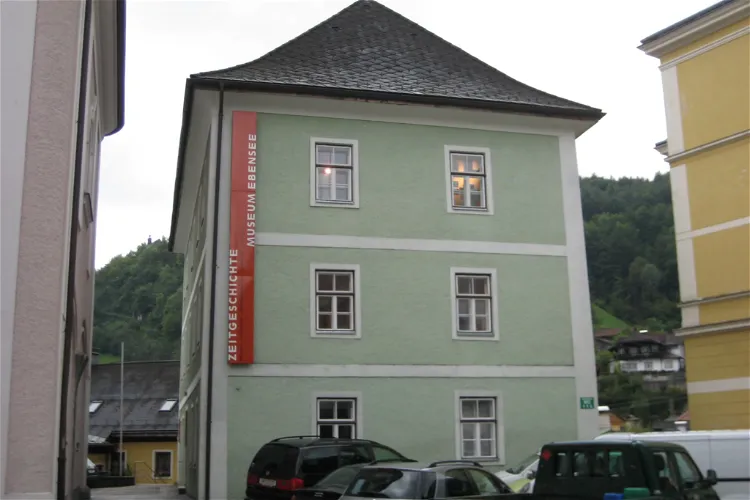
Zeitgeschichte Museum Ebensee
EbenseeThe Zeitgeschichte Museum Ebensee is a historical regional museum situated in the market town of Ebensee, in the Austrian state of Upper Austria. This museum is dedicated to the political contemporary history of the Salzkammergut region between 1918 and 1955. It provides a unique opportunity for visitors to delve into the historical events that shaped this region during this period.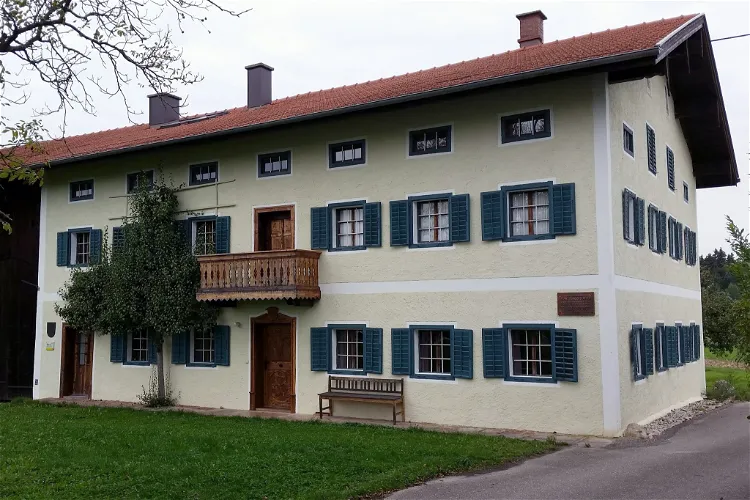
Franz Jägerstätter
Sankt RadegundFranz Jägerstätter was an Austrian conscientious objector during World War II. He was born in Sankt Radegund, a small village in Upper Austria, between Salzburg and Braunau am Inn, where almost everyone was Catholic. He was sentenced to death and executed for refusing to fight for Nazi Germany. His story is a significant part of the history of Sankt Radegund and is likely to be of interest to tourists visiting the area.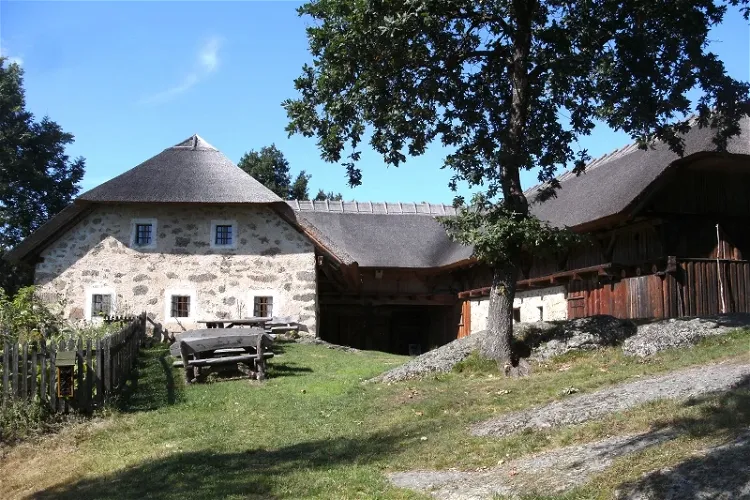
Großdöllnerhof
RechbergGroßdöllnerhof is a historical site that dates back 400 years. It is located in the Mühlviertel Nature Park in the municipality of Rechberg. Today, it serves as an open-air museum, offering visitors a glimpse into the past. The farmstead is a protected monument, showcasing the typical Mühlviertel technique of stone-bare wall construction. This technique involves the use of uncut granite blocks and whitewashed mortar zones to structure the exterior walls.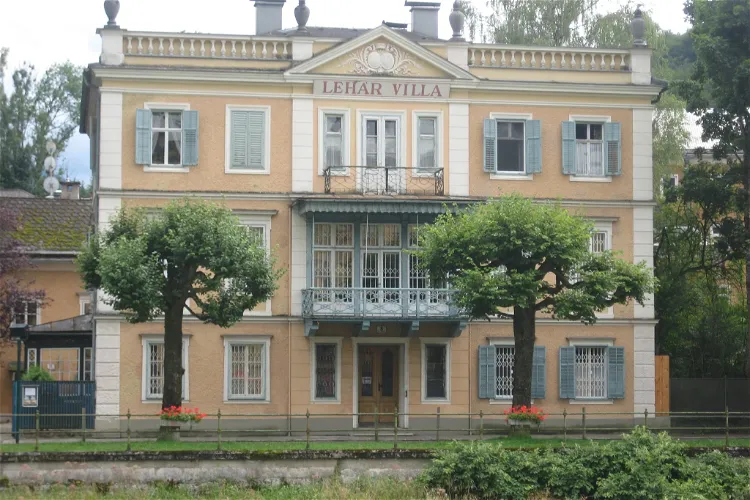
Lehár Villa
Bad IschlThe Lehár Villa in Bad Ischl, located at Lehár-Kai 8 in the Salzkammergut region, was once the summer residence of the famous composer Franz Lehár. He purchased the property in 1912 from the Duchess of Sabran and spent nearly every summer there. This historical connection adds a unique charm to the villa, making it an interesting destination for those interested in Lehár's life and work.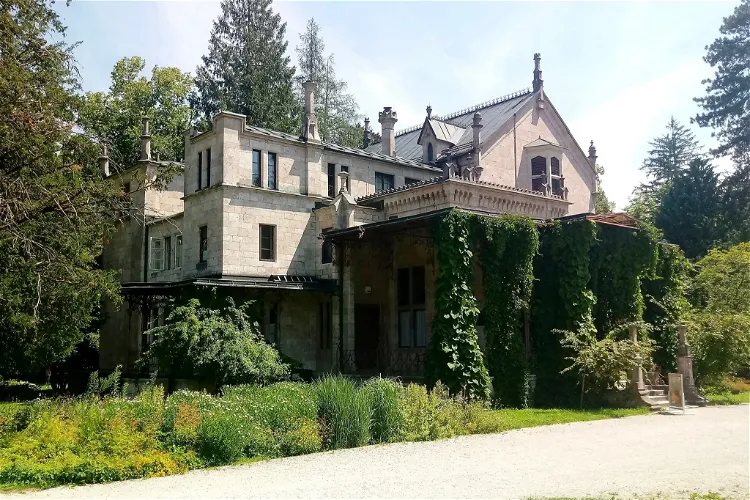
Marmorschlößl Fotomuseum
Bad IschlThe Marmorschlössl, historically known as the imperial cottage, is located in the Kaiserpark of Bad Ischl. It was used by Emperor Franz Joseph I and Empress Elisabeth as a breakfast salon. This historical significance adds a unique charm to the place, making it an interesting spot for tourists who are keen on history and royal life.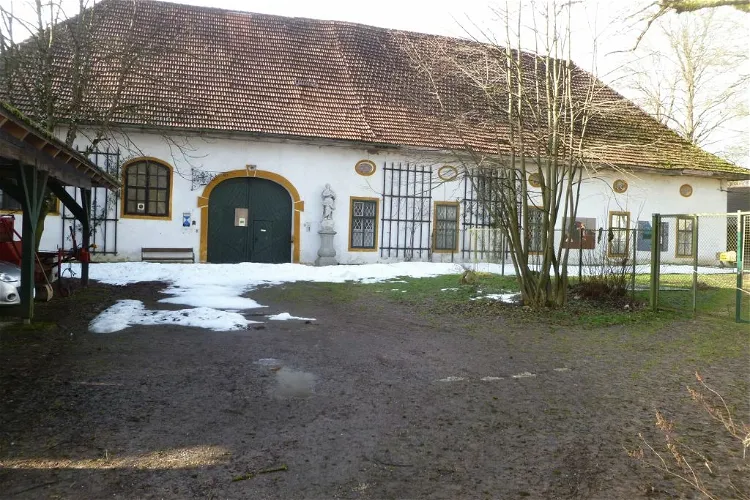
Schloss Walchen
VöcklamarktThe Kinderweltmuseum Schloss Walchen housed approximately 1200 exhibits, with a primary focus on the lives of children in different social milieus. The museum aimed to provide a comparative view of the lives of children from bourgeois, peasant, and worker backgrounds.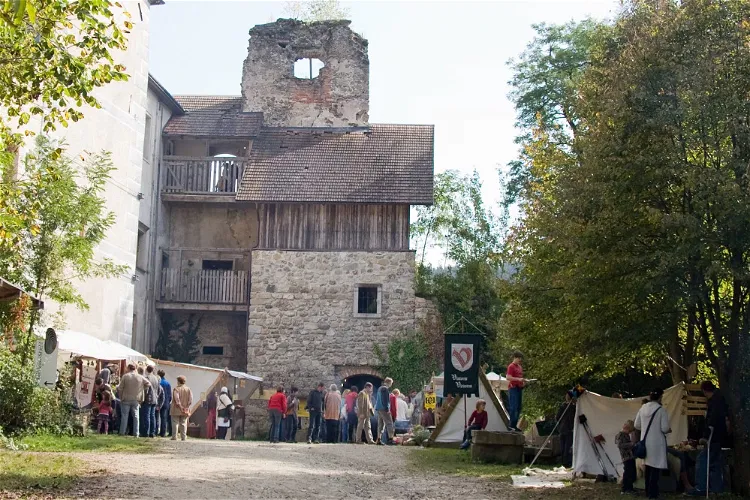
Upper Austrian Castle Museum Reichenstein
TragweinReichenstein Castle, located in the town of Reichenstein in the municipality of Tragwein in the district of Freistadt in Upper Austria, is a semi-ruin of a castle that was converted into a chateau. The castle is situated on a narrow, steeply sloping rock ridge above a river loop of the Waldaist. The castle offers a unique blend of historical architecture and natural beauty, making it a fascinating destination for tourists.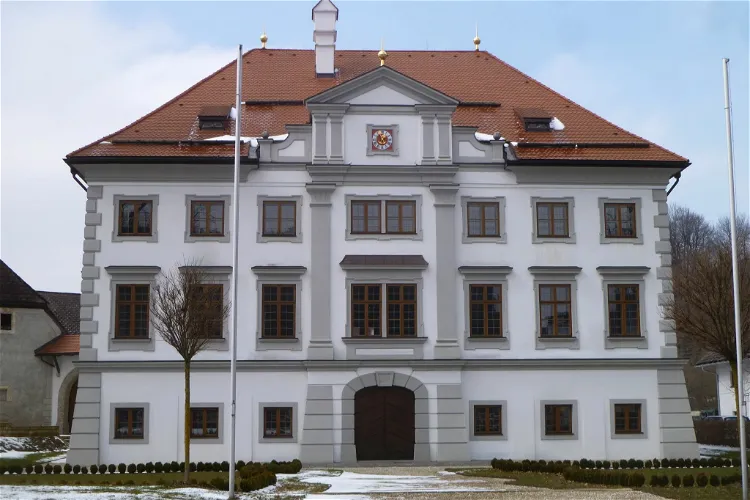
Schloß Stauff
FrankenmarktToday, Schloss Stauff serves a dual purpose. It houses the registry office of Frankenmarkt, and it also contains a museum. Visitors can explore the museum to learn more about the castle's history and the region's cultural heritage.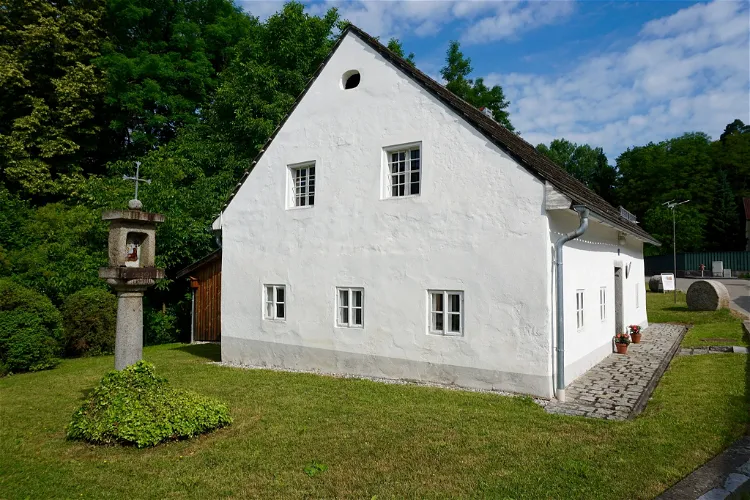
Mühlsteinmuseum Steinbrecherhaus
PergThe Mühlsteinmuseum Steinbrecherhaus is a unique museum located in the city of Perg. It is a simple worker's house that was built in the early 19th century. The house is situated on the grounds of the Scherer millstone quarry in the Obervormarkt area of the city. This location provides a unique insight into the lives of the workers who lived and worked in this area during the 19th century.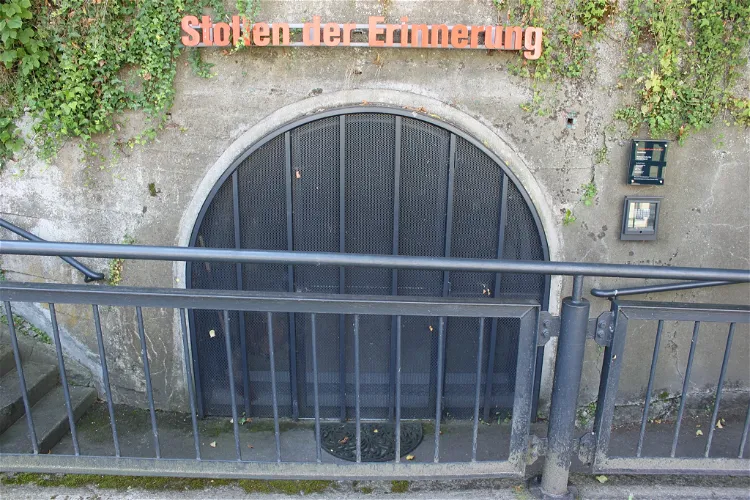
Stollen der Erinnerung
SteyrThe Stollen der Erinnerung, located in the city of Steyr in Upper Austria, is a permanent exhibition dedicated to the history of forced labor and concentration camps. This museum provides a deep insight into a significant part of history, making it a valuable visit for those interested in historical events and their impact on society.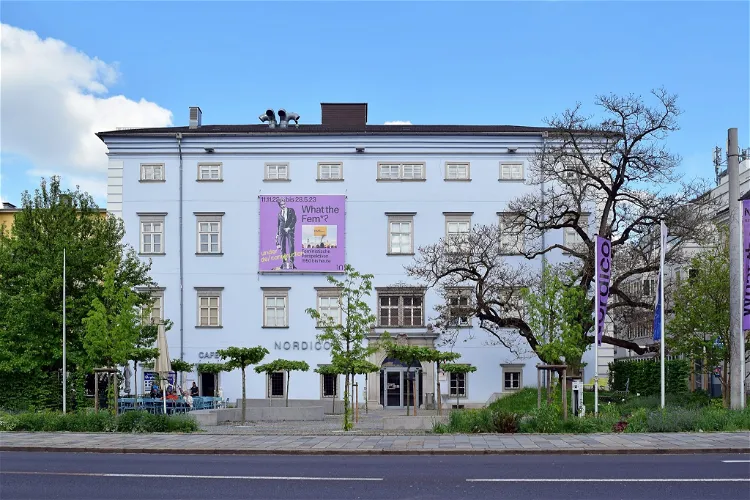
Nordico City Museum Linz
LinzThe Nordico City Museum is situated in the city hall district of Linz, Austria, specifically at Simon-Wiesenthal-Platz 1. This location is easily accessible and central, making it a convenient stop for tourists exploring the city.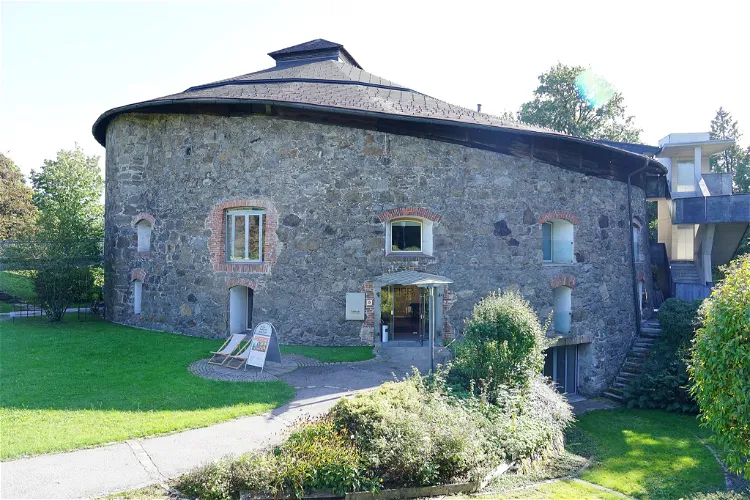
Stadtmuseum Leonding
LeondingThe Stadtmuseum Leonding, also referred to as the Turmmuseum, is situated in Tower 9 of the Linz Tower Fortification in Leonding. It has been functioning as a museum since 1999, providing a unique blend of history and culture to its visitors.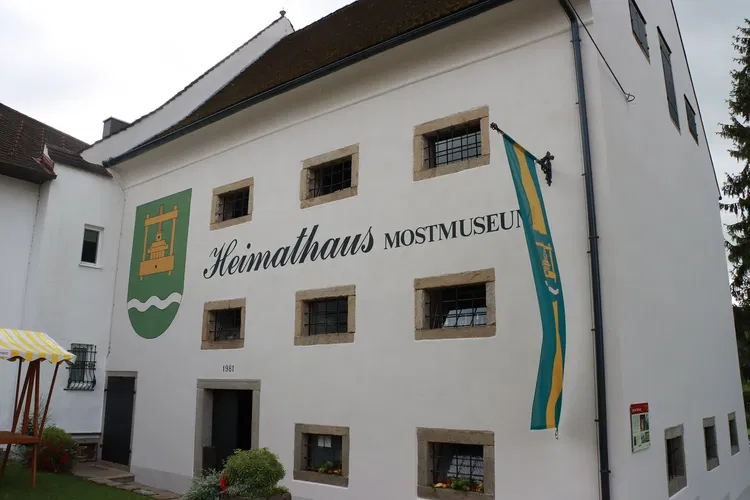
Sankt Marienkirchen an der Polsenz
UnterfreundorfSt. Marienkirchen an der Polsenz is a quaint market town located in the Hausruckviertel in the Eferding district of Upper Austria. As of January 1, 2023, the town has a population of 2349 residents. This charming town offers a unique blend of history and culture, making it an interesting destination for tourists.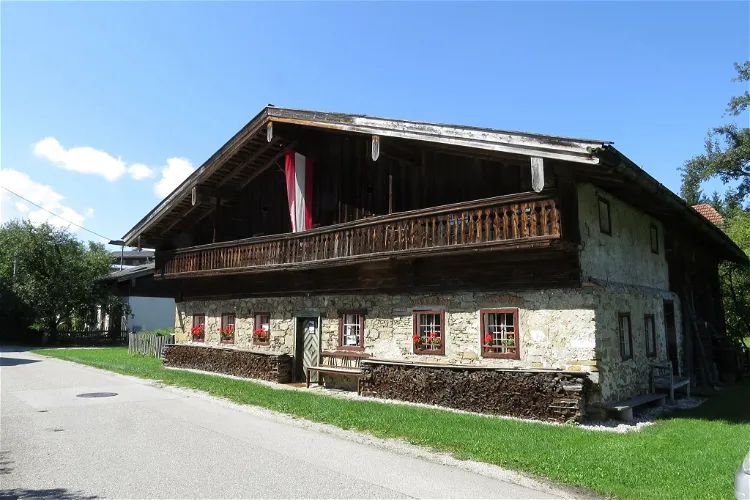
Aignerhaus Museum
Sankt Georgen im AttergauThe Aignerhaus Open Air Museum is a collection of rural buildings situated in St. Georgen im Attergau, Upper Austria. The main building of the museum is a protected monument, showcasing the architectural heritage of the region. Visitors can explore this unique ensemble of buildings and gain insights into the rural life and associated crafts of the past.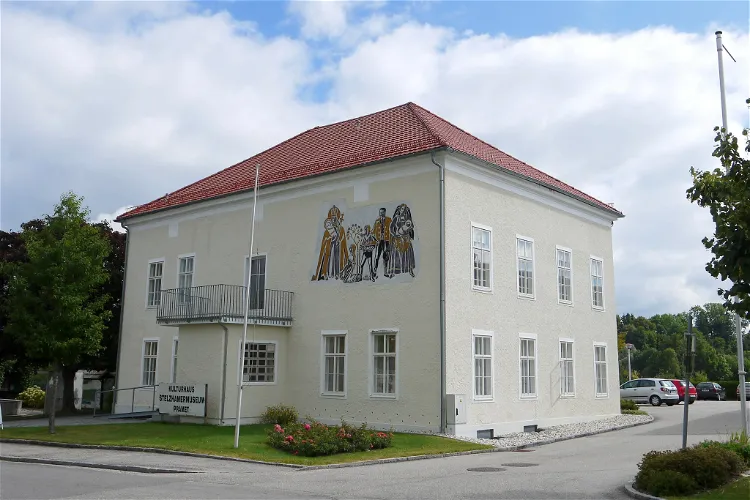
Kulturhaus Stelzhamermuseum Pramet
PrametPramet is a quaint village nestled in the Innviertel region of Upper Austria. It is situated approximately 7½ kilometers south of Ried im Innkreis, making it a peaceful retreat away from the bustling city. The village is surrounded by beautiful landscapes, offering a serene environment for visitors to explore and enjoy.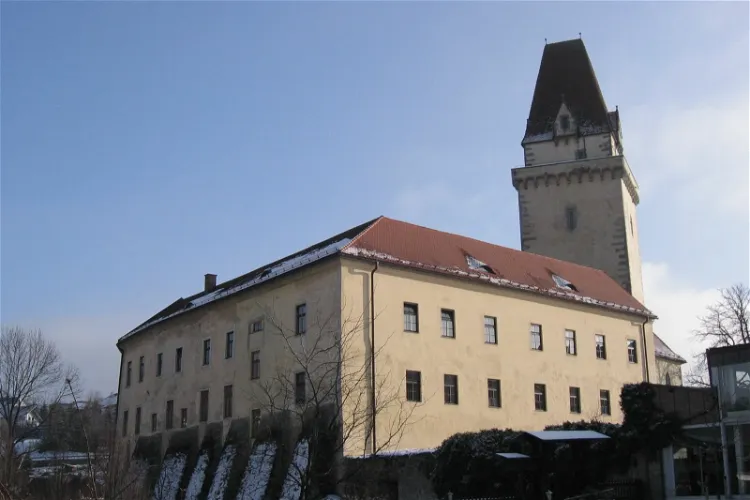
Freistadt Castle
FreistadtFreistadt Castle, located in the Upper Austrian Mühlviertel, is a historical monument that was constructed between 1363 and 1398. The castle was built to strengthen the fortifications of the town of Freistadt. This historical significance adds to the charm and appeal of the castle, making it a point of interest for tourists visiting the area.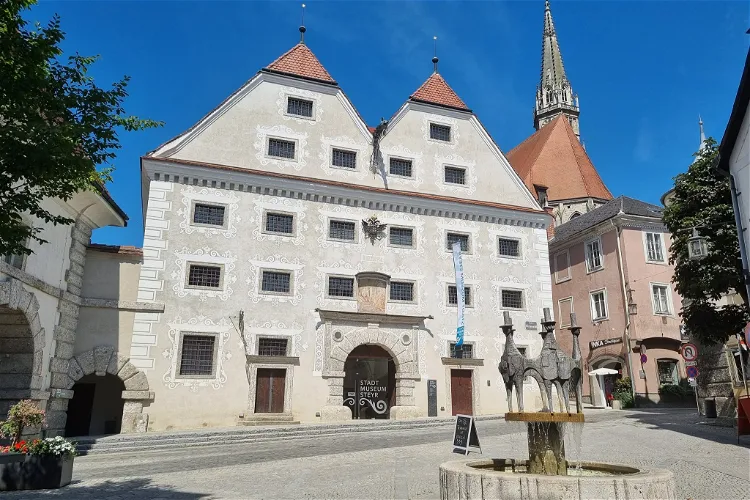
Stadtmuseum Steyr
SteyrThe Stadtmuseum Steyr, situated at Grünmarkt 26 in Steyr, Austria, has been a significant cultural institution since its establishment in 1913. The museum's collections are housed in two historic buildings: the Innerberger Stadel and the neighboring Neutor. These buildings provide a unique setting for the museum's diverse collections, which span various periods and themes.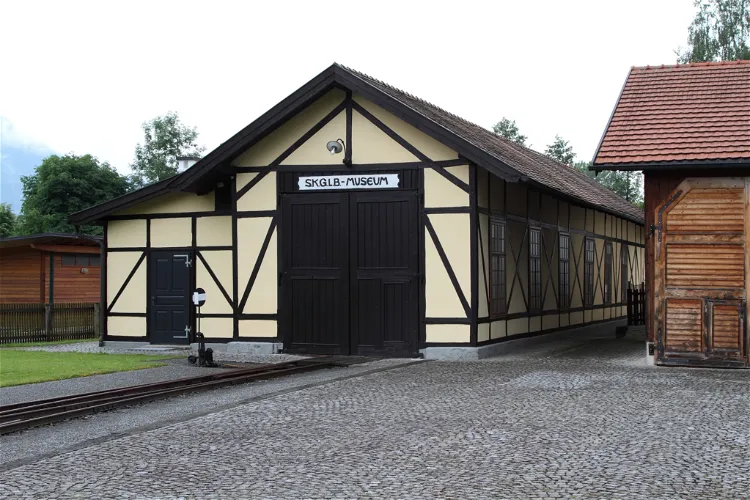
SKGLB Museum
MondseeThe SKGLB-museum, located in Mondsee, Upper Austria, is a railway museum dedicated to preserving the history of the Salzkammergut-Lokalbahn (SKGLB). It provides a unique insight into the region's railway history and is a significant cultural landmark.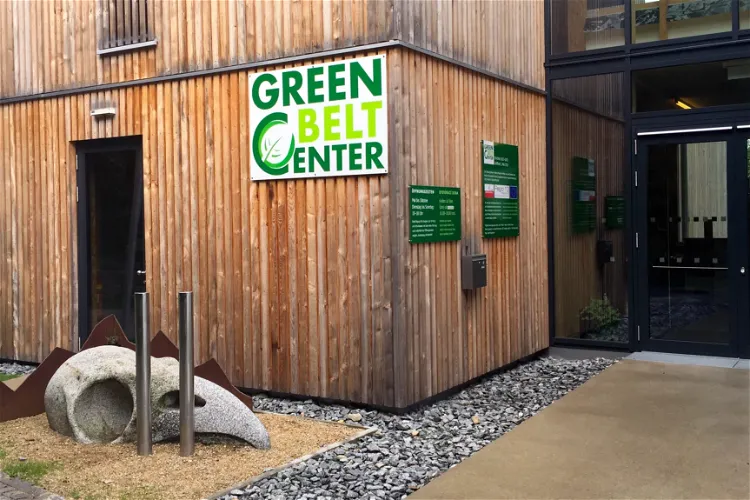
Green Belt Center
Windhaag bei FreistadtThe Green Belt Center, located in Windhaag bei Freistadt, is a visitor center that opened its doors in 2015. It is situated in the northern Mühlviertel, directly on the border with South Bohemia. This location makes it a unique destination for those interested in exploring the region's history and natural beauty.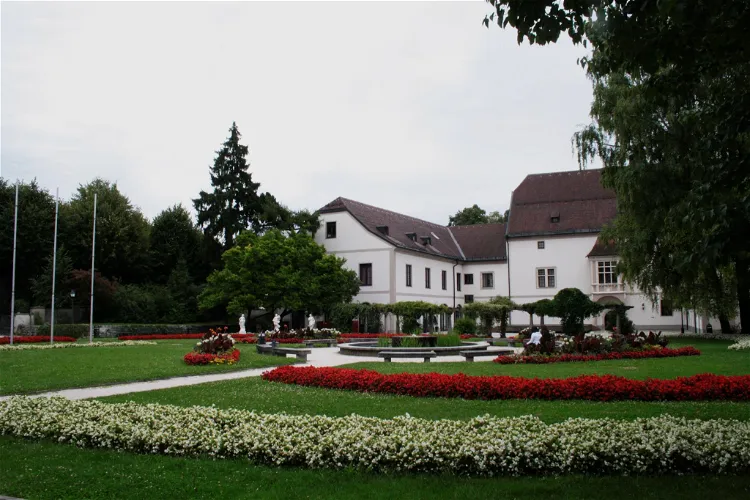
Burg Wels
WelsThe imperial Burg Wels is a castle-like fortress that is situated in the southeast of the city center of Wels, Upper Austria. Today, it serves as a museum, offering visitors a chance to delve into the rich history of the region. The castle's strategic location and its historical significance make it a notable point of interest for tourists visiting Wels.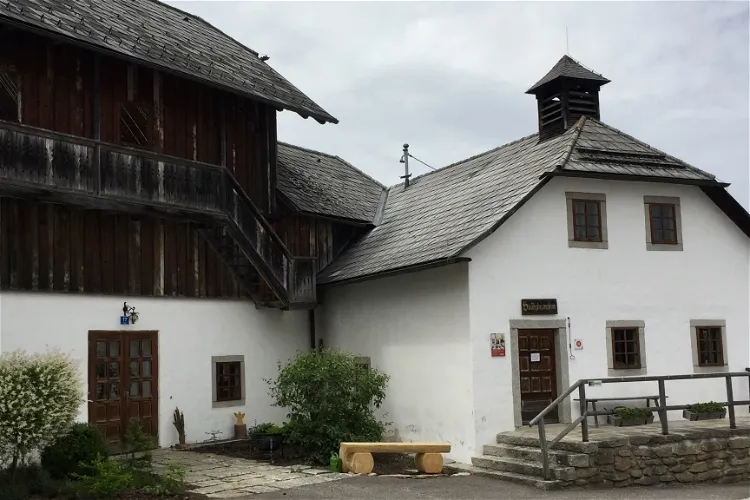
Hinterglasmuseum
SandlThe Hinterglasmuseum in Sandl, established in 1989, showcases exhibits of reverse glass painting, a technique that was characteristic of Sandl in the 19th century. This unique art form is a significant part of the region's cultural heritage and provides a fascinating insight into the traditional crafts of the area.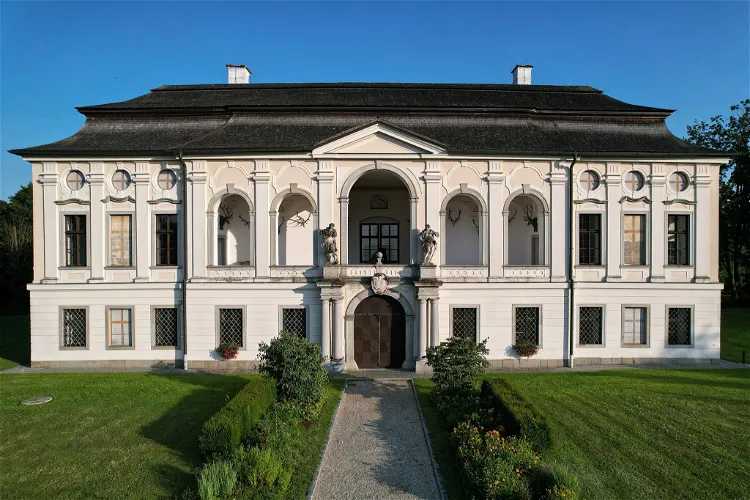
Jagdmuseum Schloß Hohenbrunn
Sankt FlorianSchloss Hohenbrunn was constructed between 1722 and 1732 by master builder Jakob Steinhuber, following the designs of Jakob Prandtauer. This historical context adds a layer of cultural significance to the castle, making it a point of interest for visitors interested in architecture and history.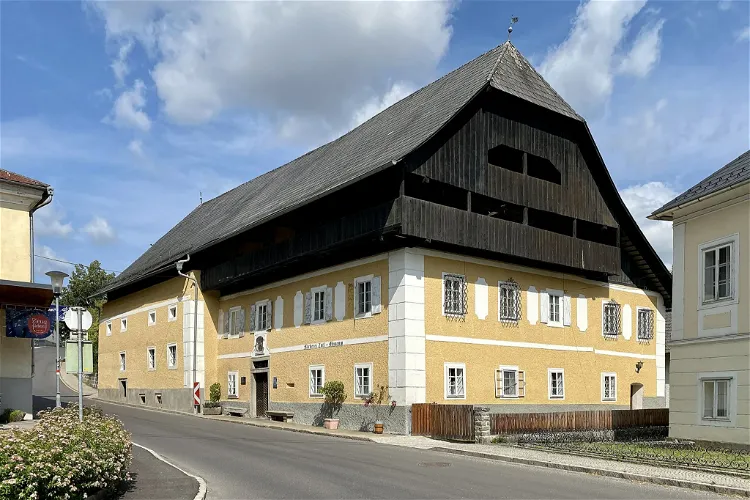
Färbermuseum Gutau
GutauThe Färbermuseum Gutau, located in Upper Austria, is a museum dedicated to the regional culture and economic history of dyeing. It particularly focuses on the Mühlviertler hand block printing, a technique that has been recognized as an intangible cultural heritage. This museum offers a unique insight into the traditional dyeing techniques and the cultural significance of this craft in the region.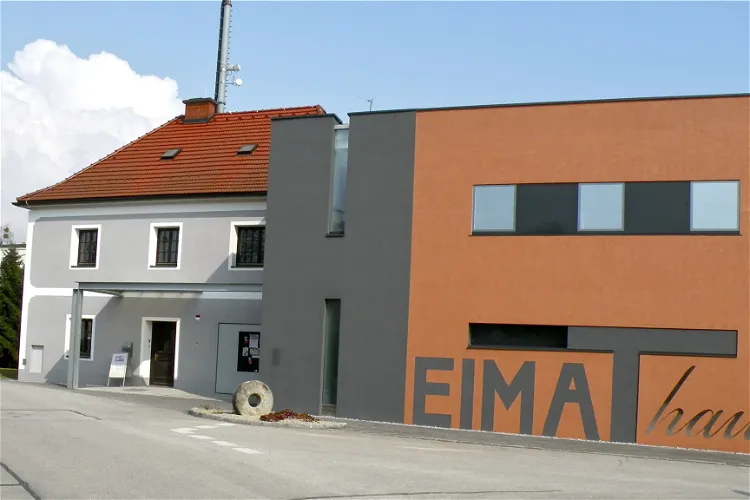
Heimathaus-Stadtmuseum Perg
PergOn October 23, 1993, the Heimathaus-Stadtmuseum Perg was officially opened at Stifterstraße 1. This location, which was formerly the residential and business premises of painter Josef Uhl, was suitably converted and adapted to house the museum's collection. This marked a significant milestone in the preservation and promotion of Perg's local history.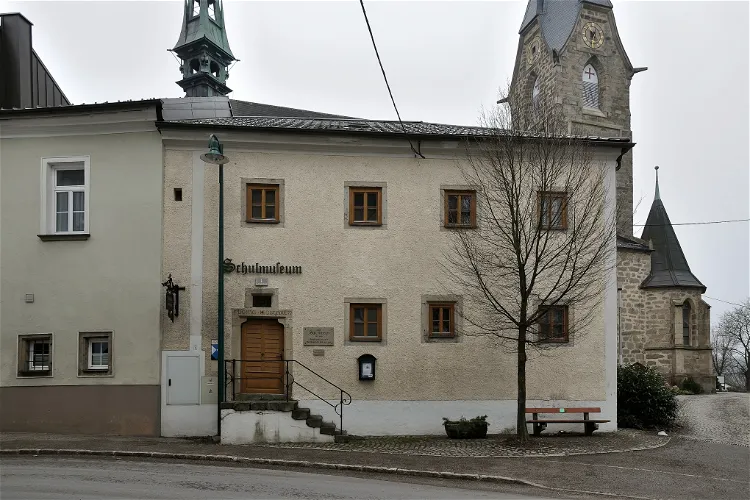
OÖ. Schulmuseum
Bad LeonfeldenThe Bad Leonfelden School Museum is a unique institution dedicated to the history of school pedagogical development. It is located in a protected former school building that was in operation from 1577 to 1850, making it one of the oldest surviving school buildings in Upper Austria. This historical significance adds a unique charm to the museum, making it a fascinating destination for those interested in education history.- 28
Puppenhausmuseum Sankt Thomas am Blasenstein
Sankt Thomas am BlasensteinThe Puppenhausmuseum Sankt Thomas am Blasenstein is situated in the market town of St. Thomas am Blasenstein, in the Perg district of Upper Austria. This location is easily accessible and offers a unique cultural experience for visitors interested in dollhouses and miniatures. - 29
Mauthausen Pharmacy Museum
MauthausenThe Mauthausen Pharmacy Museum is situated in the historic Pragstein Castle, nestled in the market town of Mauthausen in Upper Austria. This location offers visitors a unique blend of history and culture, as they explore the museum within the castle's ancient walls.